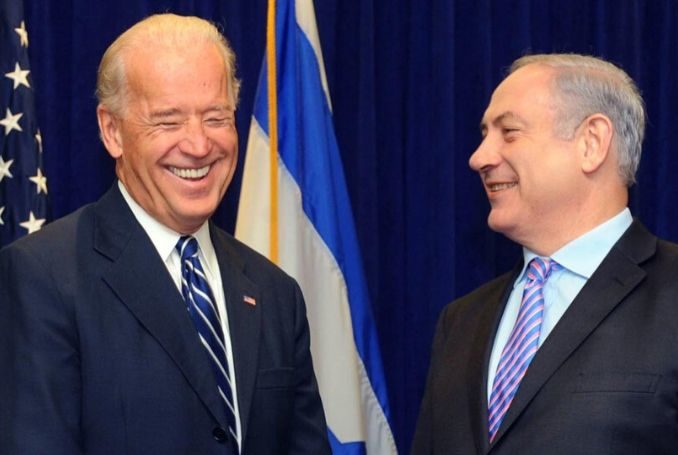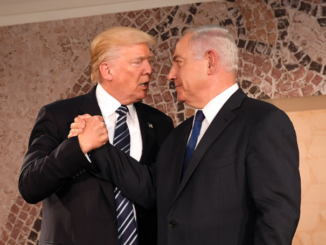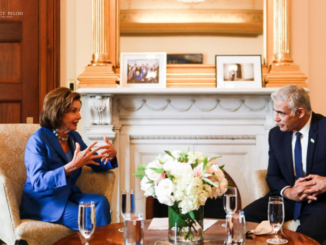
By Benay Blend
On October 6, presidential candidate Joe Biden delivered a call to heal a “divided country,” thereby hoping to transcend party lines and perhaps garner a few more moderate Republican votes. By speaking at Gettysburg, Pennsylvania, Biden recalled Abraham Lincoln’s “house divided” speech. In it, Lincoln recalled the principles of equality enshrined in the Declaration of Independence by connecting the sacrifices of the Civil War with a desire for “a new birth of freedom,” as well as his most important goal of preserving the Union at all costs.
“Today, once again, we are a house divided, but that, my friends, can no longer be,” Biden said. “We are facing too many crises, we have too much work to do, we have too bright a future to have it shipwrecked on the shoals of anger and hate and division.”
If he had gone back to look at history, Biden might have learned that Southerners were ramping up a slavery alternative even before the end of Reconstruction following the Civil War. As historian Eric Foner notes, by the end of the century, with the “acquiescence” of the Supreme Court, a “comprehensive system of racial, political and economic inequality,” known also as Jim Crow, had been instituted in every Southern State.
Moreover, Foner says, the alleged horrors of Reconstruction were invoked as justification. Instead of recalling what Foner describes as a “remarkable, unprecedented effort to build an interracial democracy on the ashes of slavery,” history books and politicians erroneously called this period a tragedy in order to justify the exclusion of Black Americans from the public stage.
“More than most historical subjects,” concludes Foner, “how we think about this era truly matters, for it forces us to think about what kind of society we wish America to be.” As Foner notes, post-Civil War America remains relevant today. Just as elites in both North and South referred to Black resistance during this time as terrorism—whether in holding political office; protecting their families against white terrorism in the form of the Klan; or any of the other ways that Black American defended their human rights—so political elites today refer to anti-Fascist groups as terrorists who deserve to be rounded up and locked away.
Moreover, in calling for healing a divided country, what does Biden mean? Whose house is he referring to, and who is the gatekeeper determining who gets to enter, and who gets excluded from the door? Historically, when the oppressed are asked to dialogue with their oppressors, it is the loudest voice that sets the standards and the outcome.
In addition to Joe Biden, some social justice movements, too, call for unity among various groups of people against a common enemy. When this happens the same dynamics normally apply, especially when there are Palestinians and their supporters who make up a portion of the mix.
As early as the summer of 1967, the Student Non-Violent Coordinating Committee (SNCC) created a stir when they publicly declared their allegiance to the liberation of Palestinian people. An article in The Movement, newsletter of the group, titled “The Palestine Problem” documented facts concerning the Occupation as it related to the Black struggle in the 60s.
“Since we Afro-Americans are an integral part of The Third World (Africa, Latin America, American Indians and all persons of African descent),” the article explained, “then it is necessary for us to know and understand what our brothers are doing in their homelands.”
In response, various Zionists who had been affiliated with SNCC withdrew support. “We question the motives of those Americans who oppose American militarism and support Israeli militarism,” SNCC leadership retorted, thus calling attention to the hypocrisy of what in later years would be called Progressive Except Palestine (PEP), a brand of duplicity that plagues contemporary movements to this day.
For example, under Zionist pressure one year ago the Women’s March removed Zahra Billo from its board. “This followed an Islamophobic smear campaign,” Billo tweeted, against anyone who speaks out in support of Palestine. Similar accusations were leveled against Tamika Mallory and Linda Sarsour, both women of color who were targeted by Zionist groups in an effort to remove them from the group.
More recently, the digital platform Zoom shut down an online open classroom highlighting Palestinian freedom fighter Leila Khaled. Titled “Whose Narratives? Gender, Justice and Resistance: A Conversation,” the panel was co-organized by Professors Rabab Abdulhadi and Tomomi Kinukawa and co-sponsored by the Arab and Muslim Ethnicities and Diasporas Studies Program (AMED) and the Department of Women and Gender Studies at San Francisco State University.
According to the Palestine Feminist Working Group, this incident illustrates
“ongoing attempts to silence Palestinian narratives–and specifically, Palestinian feminist narratives–that elevate not only the voices of women who have played a foundational role in our historical struggles for liberation, but more generally, a gendered analysis of our ongoing struggles for freedom from patriarchal violence and the machinery of settler-colonial dispossession.”
During the pandemic, digital platforms have partially taken the place of the rooms where organizing and educating the public would normally occur. Digital platforms, then, have assumed a new role capable of magnifying resistance by bringing far-flung groups together, yet, as the Working Group makes clear, it also has the power “to dictate the terms of the conversation,” especially if it becomes a necessity for marginalized groups to ask “permission” each time they want to speak.
The internet was supposed to be a democratizing influence, providing a stage in which all people have an equal right to act. But in reality, large corporations often control the performance by writing the script while denying access to anyone they deem unworthy.
Under such conditions, how can there be healing of a “house divided,” whether on a national or organizational scale, especially, concludes the Working Gropu, when Palestinians are subjected to ongoing efforts to dismiss their history in order to erase them from the stage.
In Joe Biden’s house, the “big tent” of the Democratic Party, Palestinians have been particularly unwelcome. Indeed, his party’s denouncement of Palestinian American activist Linda Sarsour over her support for BDS falls into line with Biden’s support for Israel.
While a group of Palestinian-American Democratic delegates demanded an “immediate retraction” of the campaign’s statement against Sarsour, no apology was forthcoming. Instead, its spokesperson reiterated support for Arab and Muslim communities, but failed to mention Sarsour, thereby recognizing the need for Arab-American votes without offering an invitation for equal space within the tent.
Perhaps the popular chant “No justice / no peace” should be accompanied by the mantra “no equality / no unity” until there is some assurance that all voices, not just the dominant white ones, will be heard.
– Benay Blend earned her doctorate in American Studies from the University of New Mexico. Her scholarly works include Douglas Vakoch and Sam Mickey, Eds. (2017), “’Neither Homeland Nor Exile are Words’: ‘Situated Knowledge’ in the Works of Palestinian and Native American Writers”. She contributed this article to The Palestine Chronicle.

– Benay Blend earned her doctorate in American Studies from the University of New Mexico. Her scholarly works include Douglas Vakoch and Sam Mickey, Eds. (2017), “’Neither Homeland Nor Exile are Words’: ‘Situated Knowledge’ in the Works of Palestinian and Native American Writers”. She contributed this article to The Palestine Chronicle.






